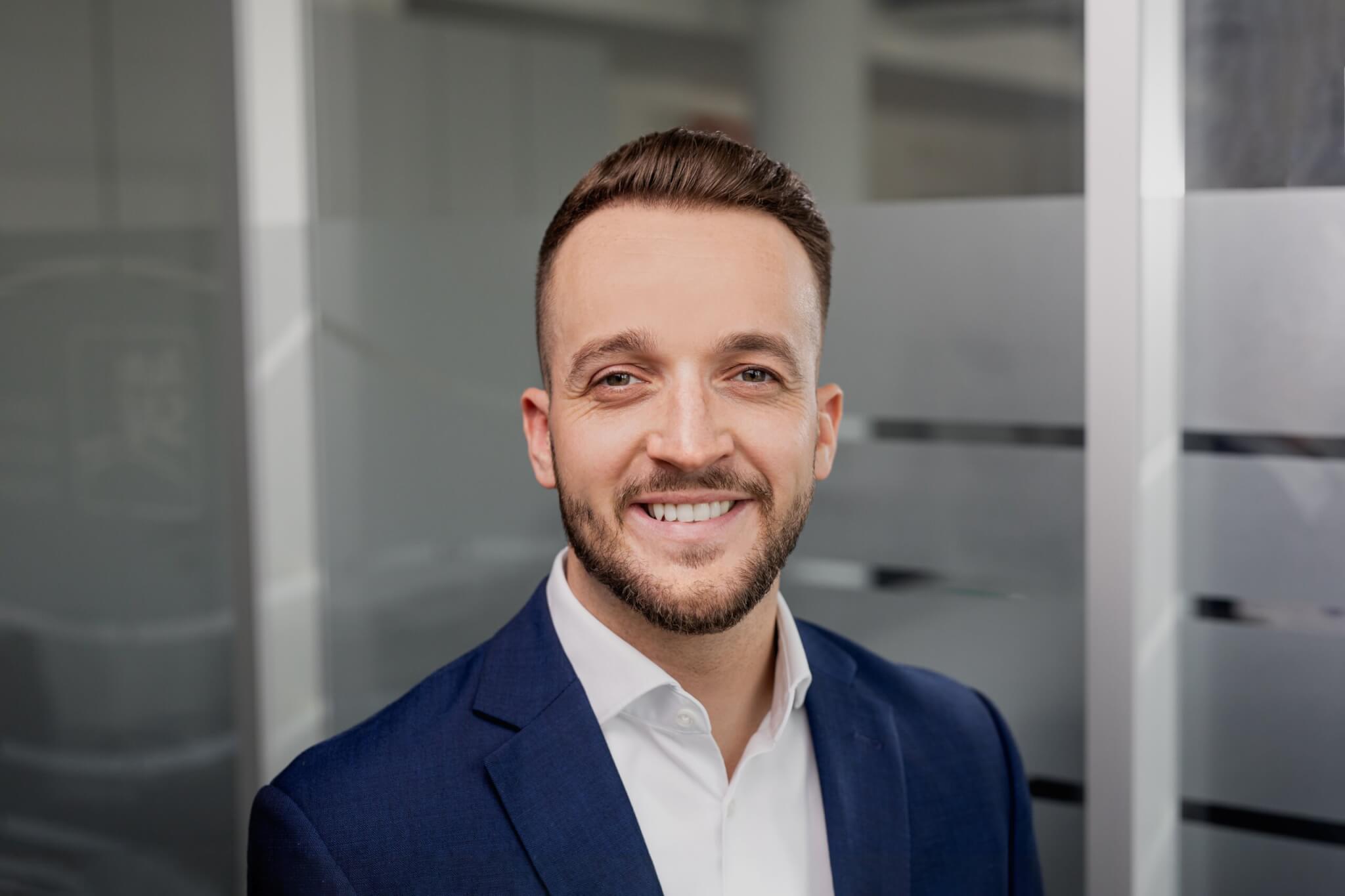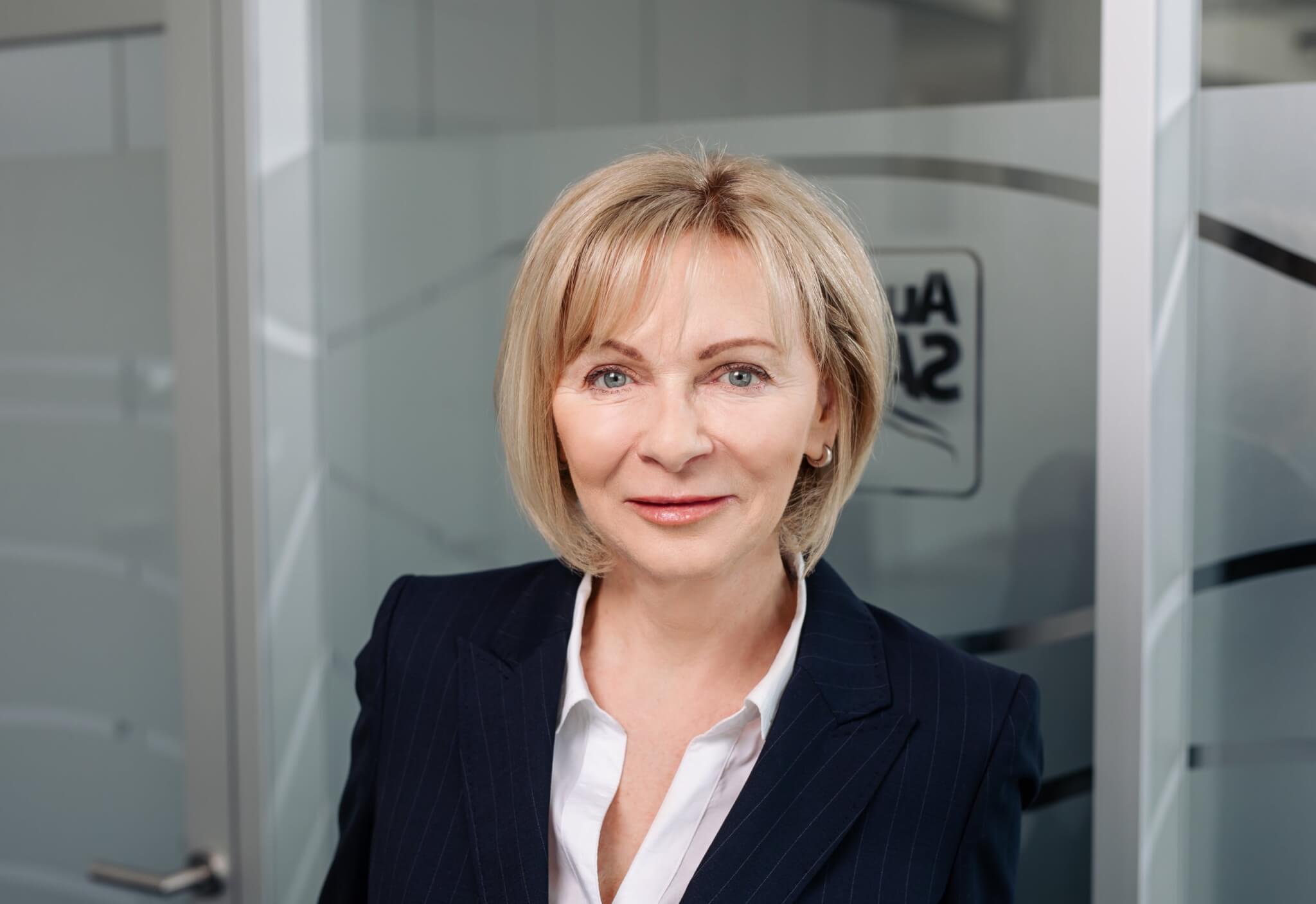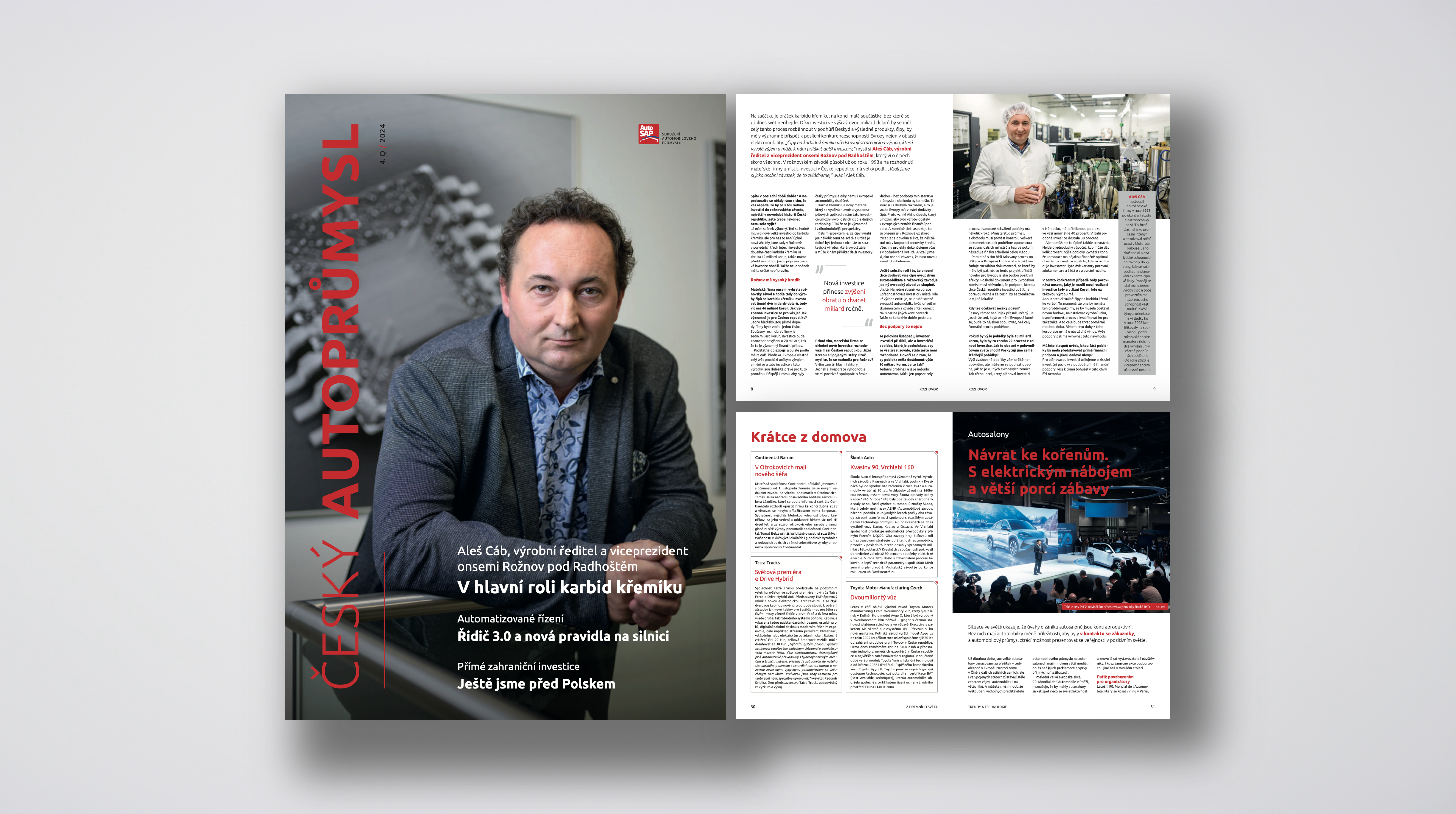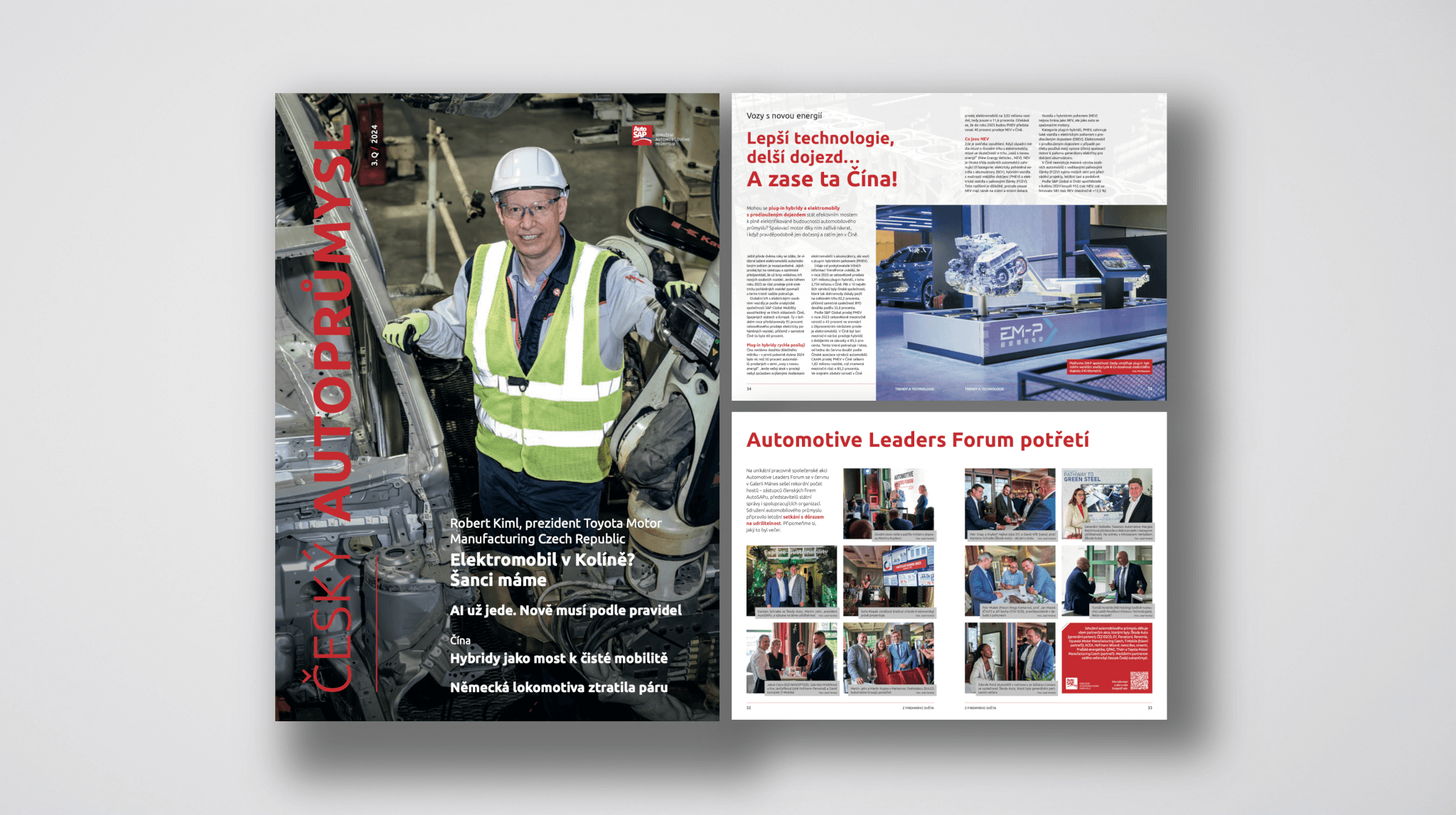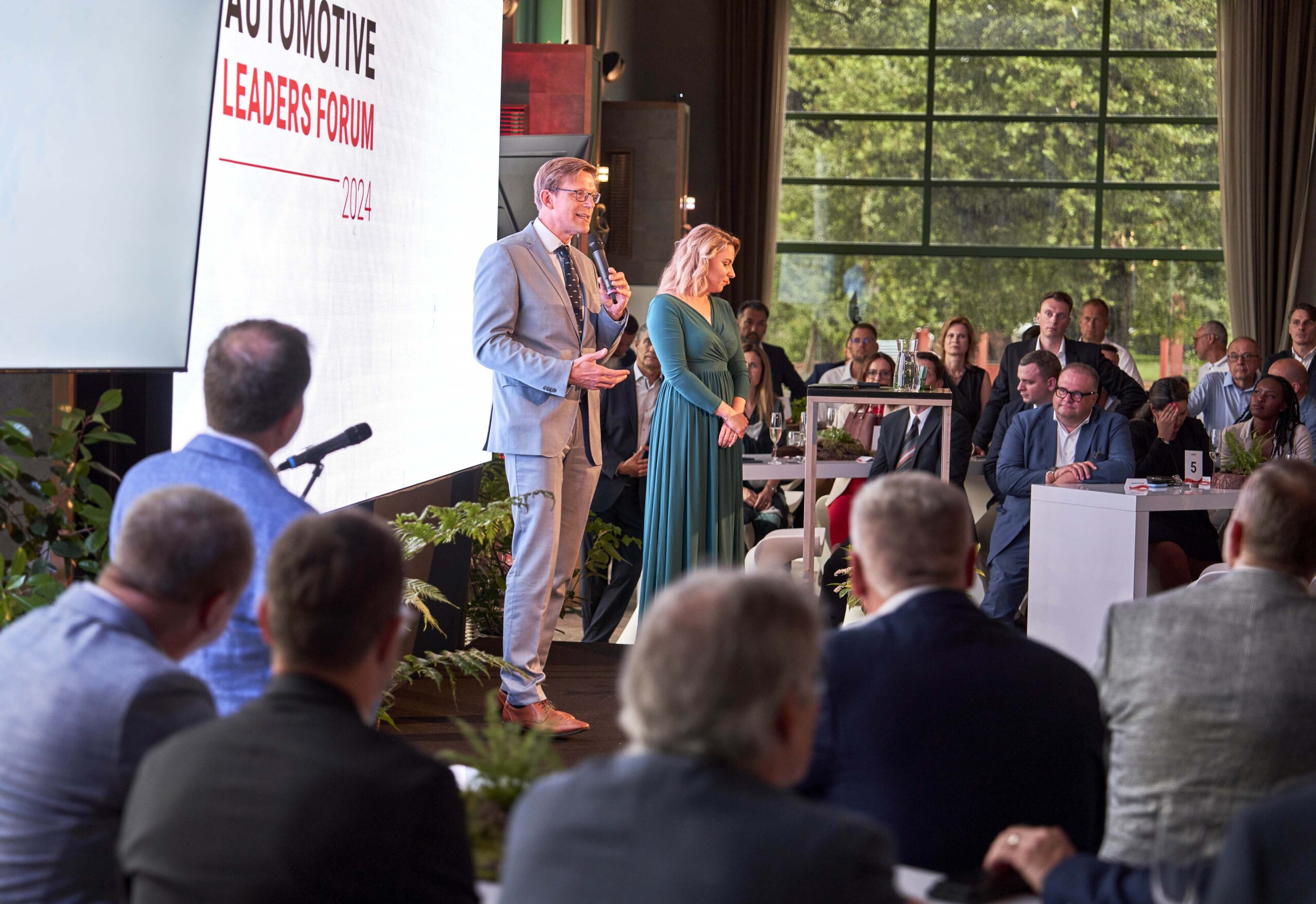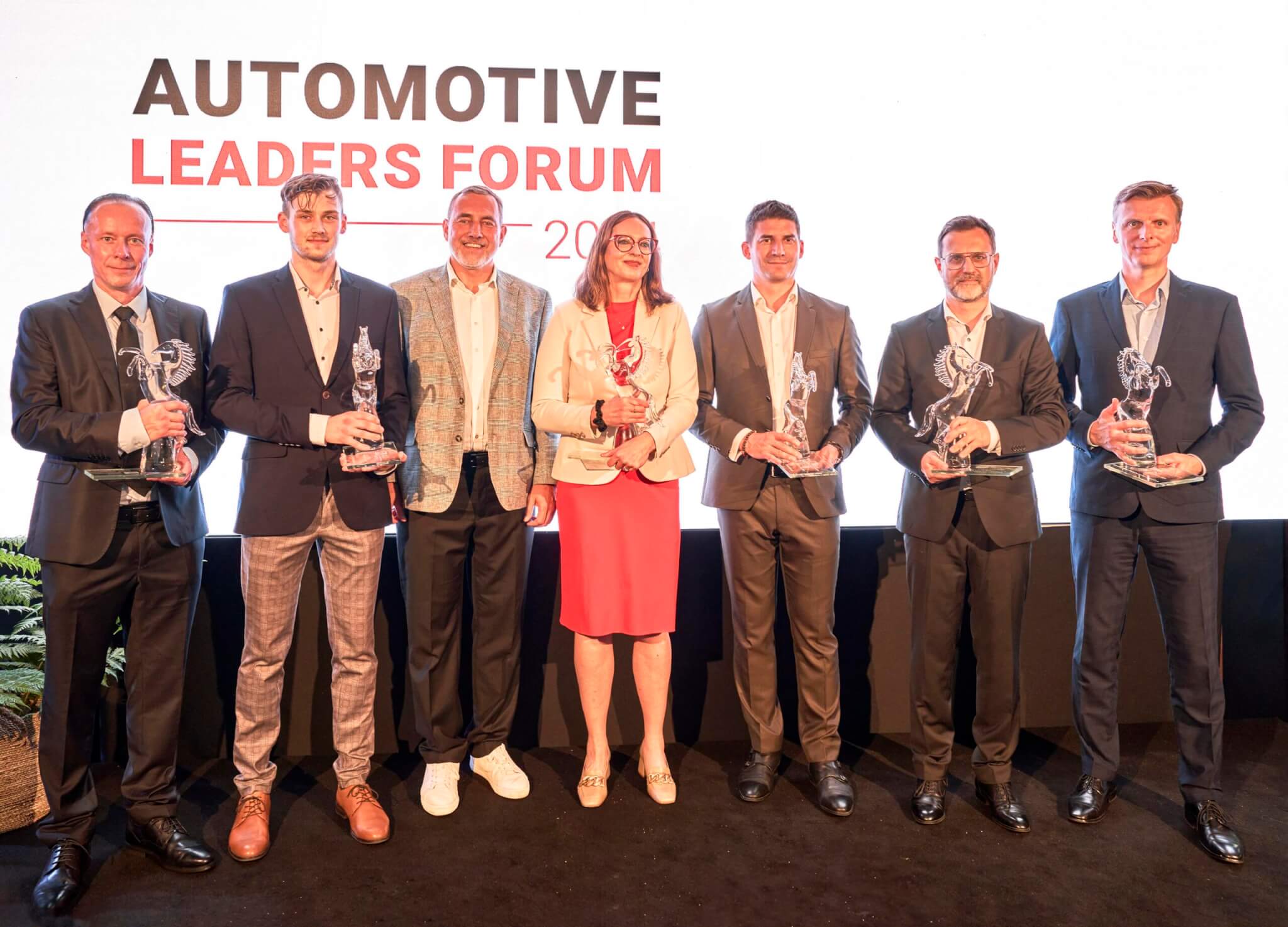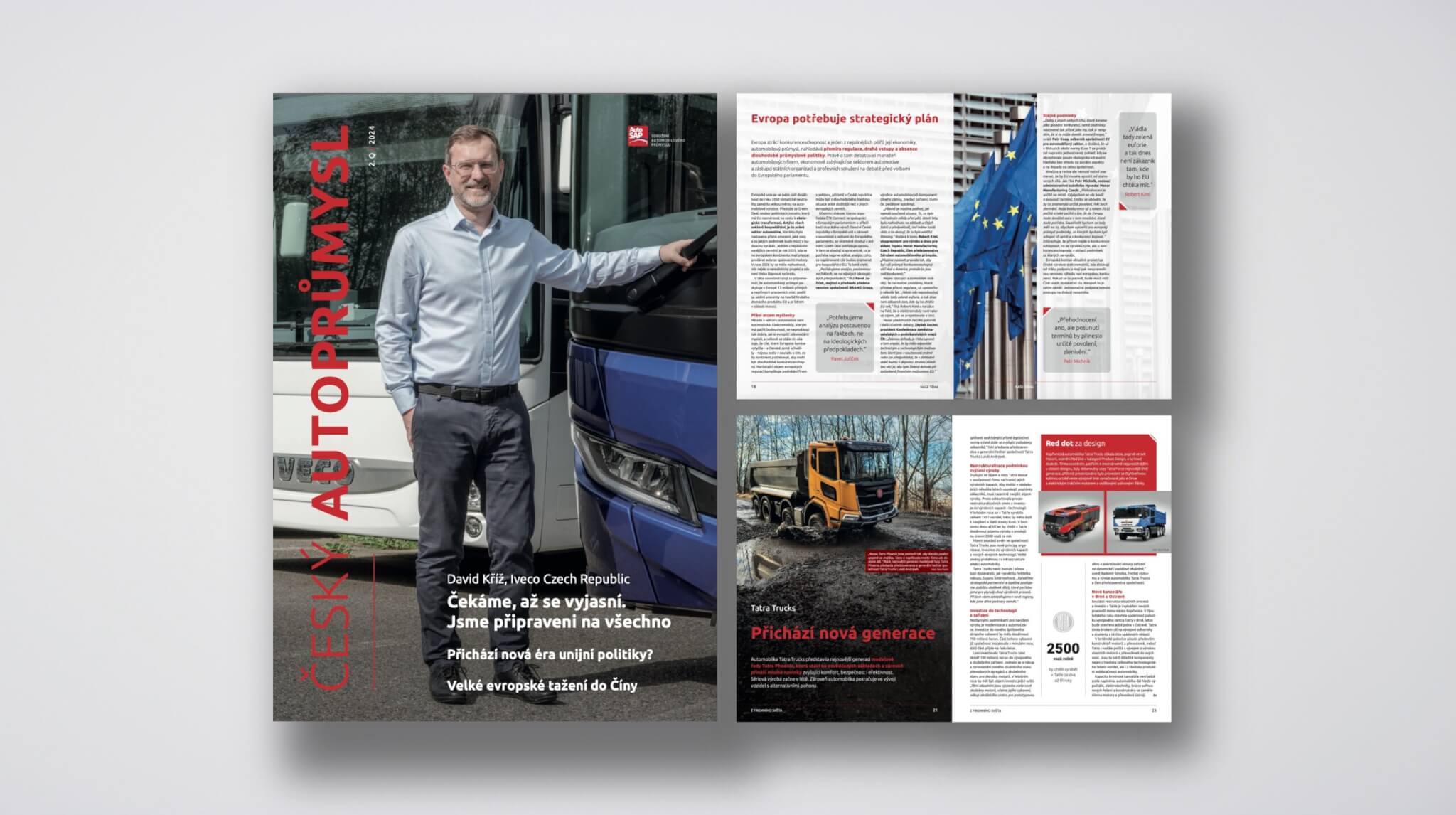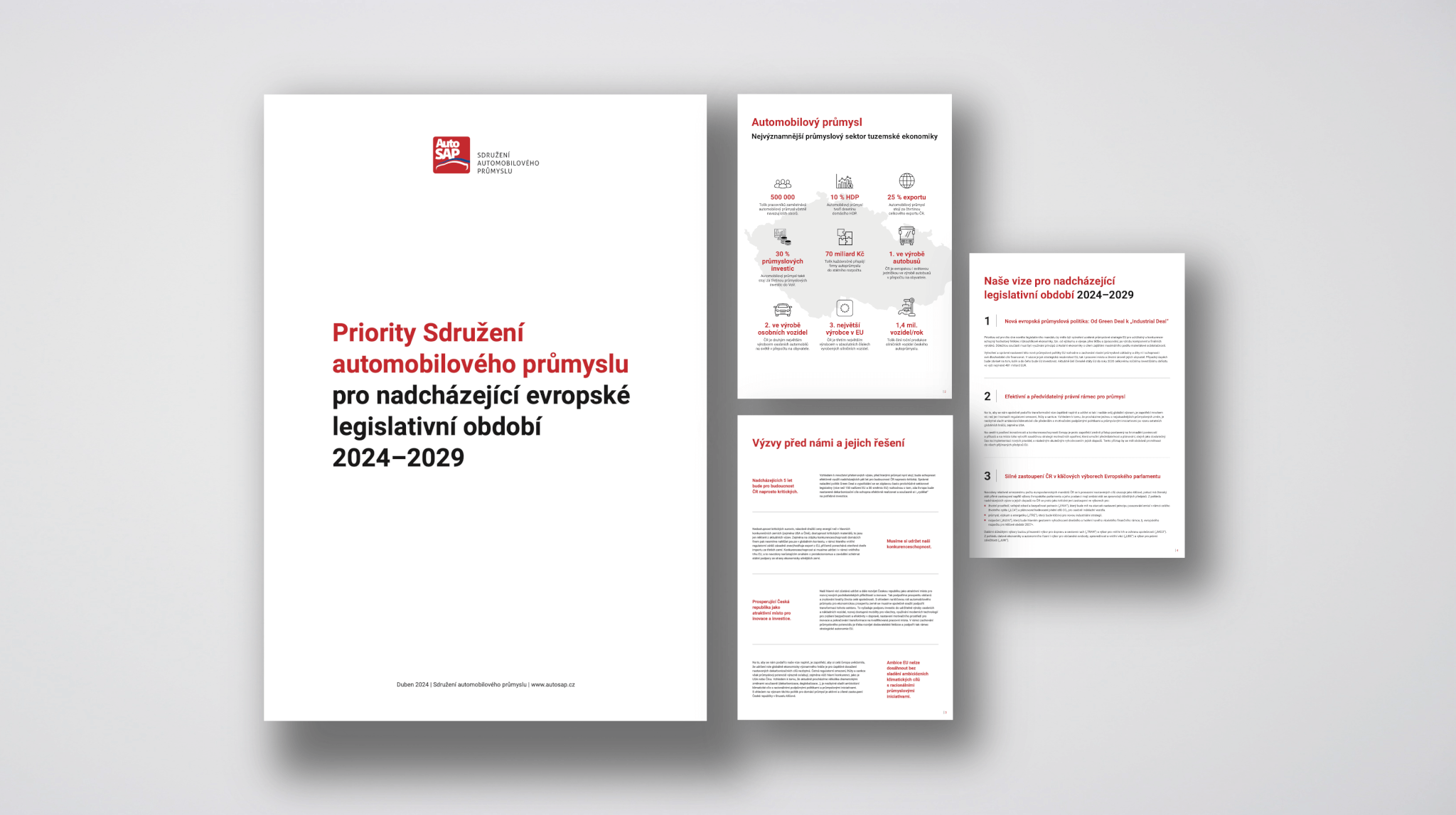It’s not happy, the irregularity of deliveries and outages continue, but the worst is hopefully behind us. This is how representatives of automotive supply companies assessed the current situation during the CEE Automotive Supply Chain conference, the largest meeting of automotive sector representatives in the Czech Republic and Slovakia. The sixth edition, which took place on 24-25 October in Olomouc, was attended by 333 heads of companies, heads of specialized purchasing or logistics departments, as well as representatives of the financial sector and analysts focused on the automotive sector. Together, they were looking for an answer to the question of how to successfully navigate through the period when the automotive industry is turning from a permanent evolution into a permanent revolution.
The past three years have not been easy for the automotive sector, but “what doesn’t kill us makes us stronger”. Martin Jahn, Member of the Board of Directors for Sales and Marketing at Škoda Auto and President of the Automotive Industry Association, opened this year’s CEE Automotive Supply Chain Conference in a rather optimistic spirit. He added that despite the negative news he is hearing, he believes in a positive future for the Czech and Slovak automotive sector. “Both the Czech Republic and Slovakia have a chance to come out of the transformation stronger,” said Martin Jahn.
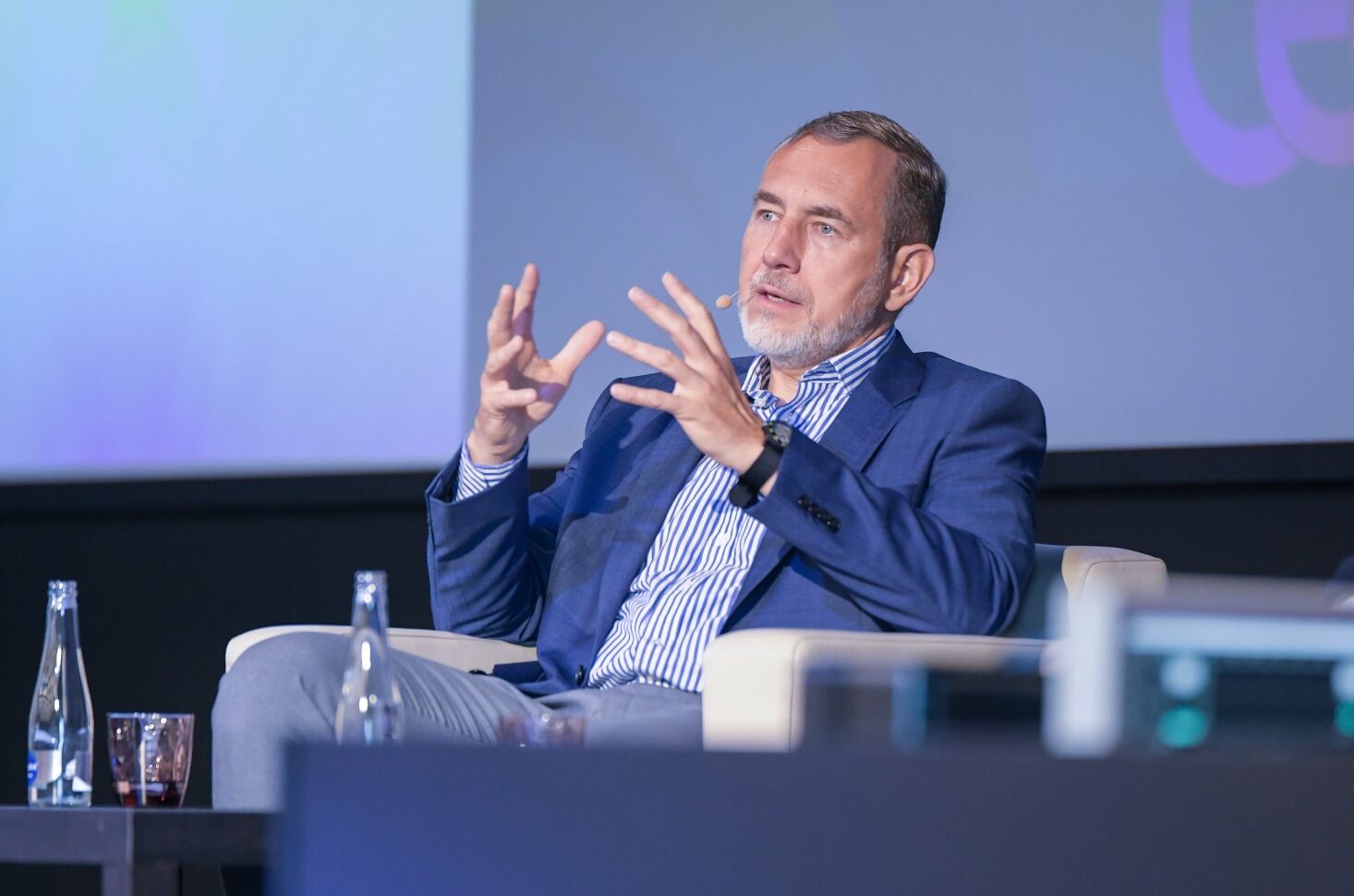
Martin Jahn, Member of the Board of Directors for Sales and Marketing at Škoda Auto and President of the Automotive Industry Association, opened this year’s CEE Automotive Supply Chain 2023 conference in Olomouc: ZAP
However, the AutoSAP president admits that many established orders are changing and that the cards are now beginning to be dealt again. While automotive manufacturers used to be a relatively closed “club”, more recently other, until recently unknown producers have been penetrating it. In addition to Tesla, these are mainly Chinese brands. The existing car companies are here to stay, but overall the automotive world will change significantly. “The car industry is moving from permanent evolution to permanent revolution,” said Martin Jahn, adding that at the moment it looks like the future belongs to electromobility in conjunction with the development of connectivity and autonomous driving. This represents a major challenge for end manufacturers and their suppliers.
Energy prices will determine the future
Jahn’s Slovak colleague, the president of the Association of Automotive Industry of the Slovak Republic, Alexander Matušek, mentioned some problems that may hinder the further development of the Slovak automotive industry. One of them is the shortage of workers, which may be very acute in connection with the launch of production by Volvo, the country’s fifth carmaker.
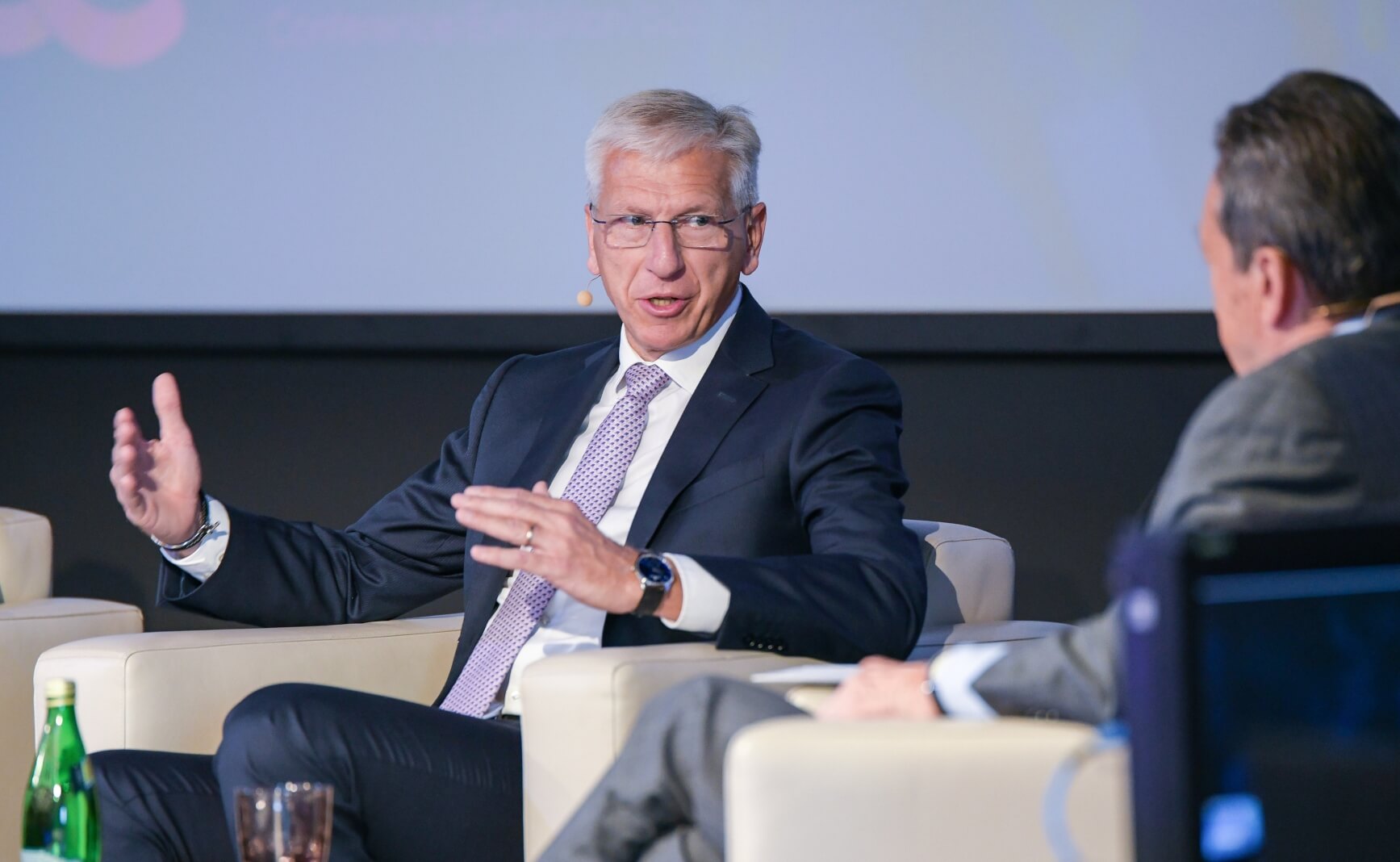
President of the Association of the Automotive Industry of the Slovak Republic, Alexander Matusek, mentioned some problems that may hinder the further development of the Slovak automotive industry. | Photo: ZAP
Both Czech and Slovak representatives of the automotive sector are calling for a more relaxed immigration policy as well as support for technical education and support for applied research.
However, the alpha and omega of a promising future will be access to strategic raw materials and energy prices, which largely determine the competitiveness of companies in global competition. Energy will be the theme of the coming years. And as Mojmír Hampl, chairman of the National Budget Council, has said, among other things, there is not a single indication that their prices could fall in the future. The costs of decarbonisation are enormous.
Mojmír Hampl assesses the current situation of companies, including those in the automotive industry, positively, but he does not see the future as encouraging. It is both expensive energy and other factors. And if these trends continue, he believes it is fair to ask whether we in Europe are able to continue the pace of decarbonisation at a reasonable cost.
Regulation and competitiveness
As virtually all speakers agreed, fewer European regulations would be beneficial. Dita Charanzová, Vice-President of the European Parliament, also acknowledged this and said that the automotive sector would benefit greatly from an inventory of legislation at EU level. She recalled that there used to be an attempt to repeal one old legislative norm for every new one, but this has probably been forgotten.
As Dita Charanzová said, the European Commission must now focus on increasing Europe’s competitiveness, which she believes is already happening. “The EU’s next topic will be how to maintain Europe’s competitiveness as decarbonisation progresses,” she said.
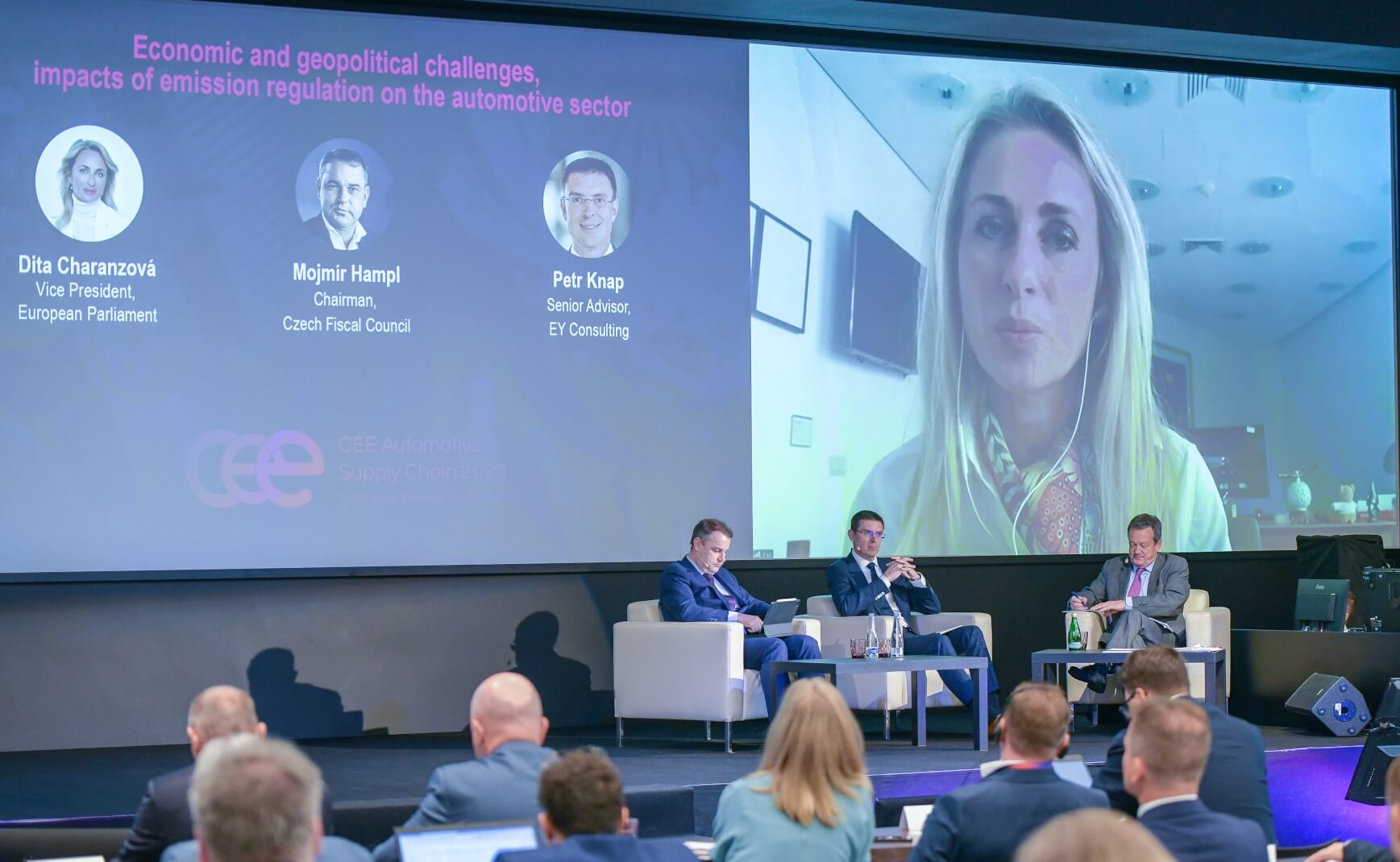
Less regulation is needed, agreed the participants of the second panel – Dita Charanzová, vice-president of the European Parliament; Mojmír Hampl, chairman of the National Budget Council; Petr Knap, senior advisor at EY and moderator Ivan Hodáč: ZAP
At the corporate level, EY senior advisor Petr Knap, who specializes in the automotive sector, recommends that automakers “get rid of as much of the complexity they have taken on as possible,” which can lead to cost savings.
The Euro 7 standard, which is supposed to further reduce emissions from cars, was mentioned rather marginally at the Olomouc conference. At the moment, the form of the standard is somewhat acceptable, but the question is how it will pass the European Parliament. According to Martin Jahn, the first draft was the biggest legislative gossip he has encountered in his entire career.
Who is and who is not ready
Representatives of three Czech and one Slovak automotive companies, Robert Kiml, Vice President for Production at Toyota Motor Manufacturing Czech Republic and Vice President of the Automotive Industry Association, Petr Michník, Head of the Administrative Subdivision at Hyundai Motor Manufacturing Czech, Karel Novák, Head of Product Platforms, IVECO Group, and Michal Lábaj, Head of Parts Development at Kia Slovakia, spoke about the manufacturers’ readiness for the new era, especially the transition to electromobility.
Automakers are ready for electromobility, but are customers? Are the energy companies ready? These are the questions raised by Robert Kiml and he added some examples that offered the answer “no”. He also highlighted the fact that while electric vehicles are emission-free, the production of batteries and some other vehicle components still generates large amounts of CO2 emissions today.
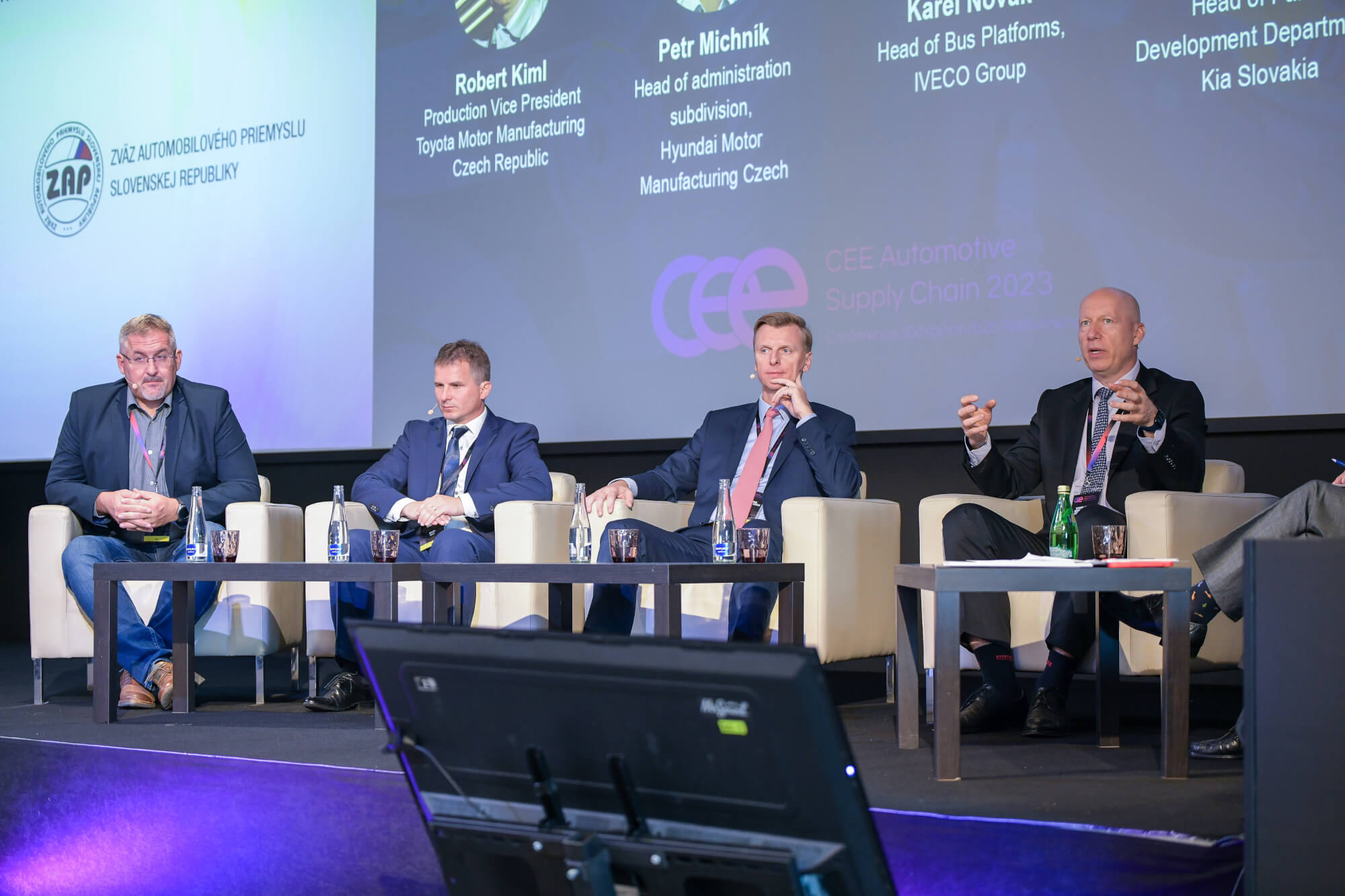
Representatives of three Czech and one Slovak car companies, (from left) Michal Lábaj, Karel Novák, Petr Michník and Robert Kiml. | Photo: ZAP
Karel Novák from Iveco, however, said that there are some areas where electromobility is already cost-effective. “In the urban segment, electromobility has already beaten diesel buses and gas buses. It doesn’t need any more subsidies,” he said.
In a panel focused on the future development of the automotive industry in the Czech Republic and Slovakia from the OEM perspective, other topics were also discussed: the different approach to electromobility across European markets, the state of supply chains, which has partially stabilised, the level of current batteries for electric vehicles, and hydrogen as a propulsion system.
China and (de)globalisation
China was mentioned in various contexts, either as a growing competitor for European carmakers or as a supplier of important raw materials and components. According to Michal Lábaje of Kia Slovakia, the Chinese companies have a seven to eight year lead and it will be difficult to catch up.
There was also a discussion about whether globalisation is gradually ending and the opposite trend is taking place, which will be manifested in the search for suppliers close to production. According to Martin Jahn, globalisation has contributed to the creation of wealth in society, and the automotive sector is one of its main drivers. There will be a change in the purchase of some strategic components, but globalisation is not going to end, he says.
However, Mojmir Hampl sees tendencies towards deglobalisation. “American economists say that what we are going to see is friendshoring, a business practice where supply chain networks target countries considered political and economic allies,” Mojmír Hampl said.
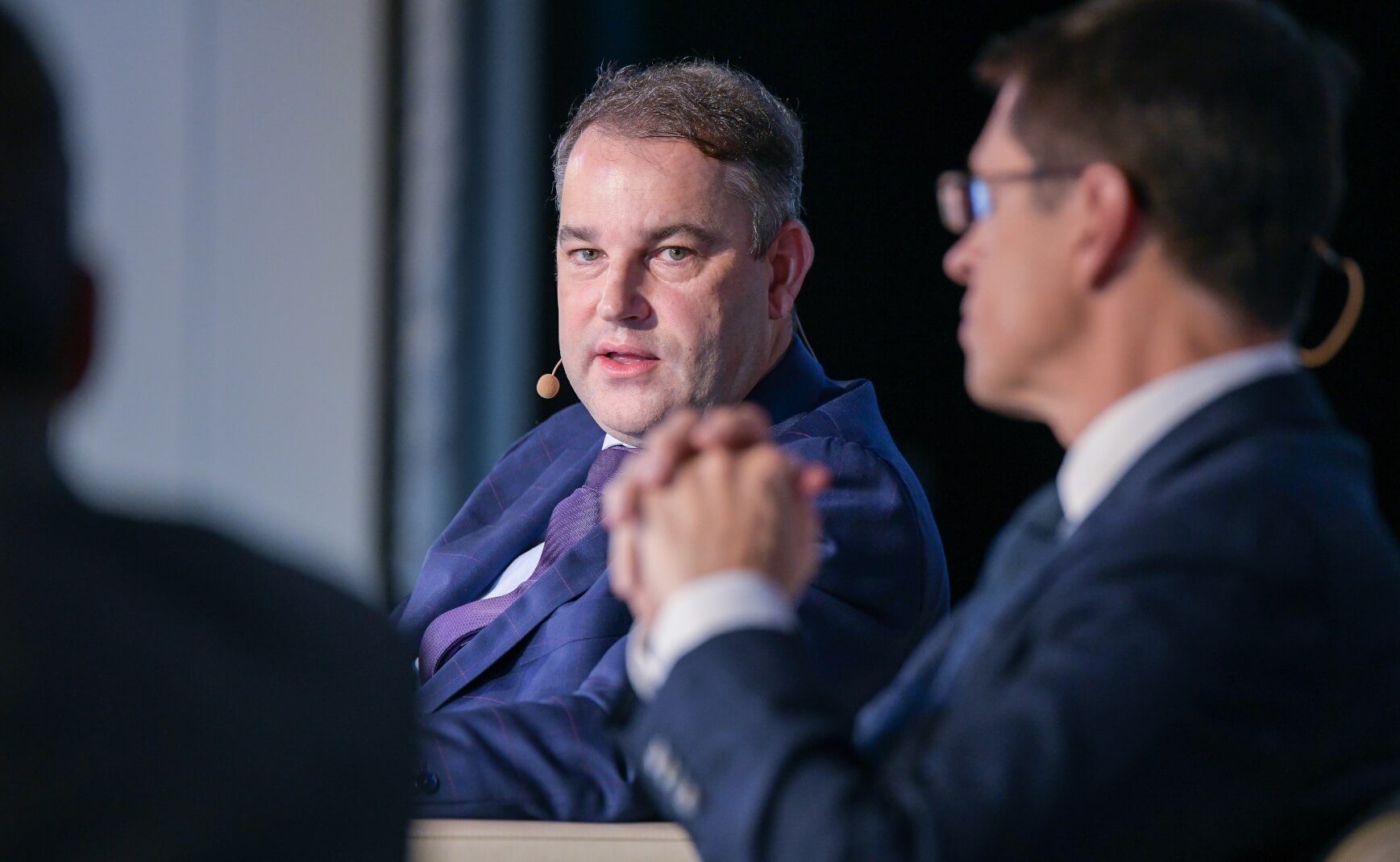
Mojmír Hampl, Chairman of the National Budget Council. | Photo: ZAP
Investment as an imperative
The session titled Changes in supply chains from a Tier 1 perspective, where Petr Novák, Director of Automotive Operations & Executive Director Production Engineering JTEKT European Operations and Chairman of the Division of Suppliers and Special Purpose Organizations in the Association of the Automotive Industry, Lukáš Rosůlek, Country Head Vitesco Technologies Czech Republic, Miroslav Fülöp, CEO of SLUŽBA NITRA and Ivan Kebísek, Engineering Director & Tech Center Trenčín Site Leader, Yanfeng International Automotive Technology, were in attendance, was of great interest.
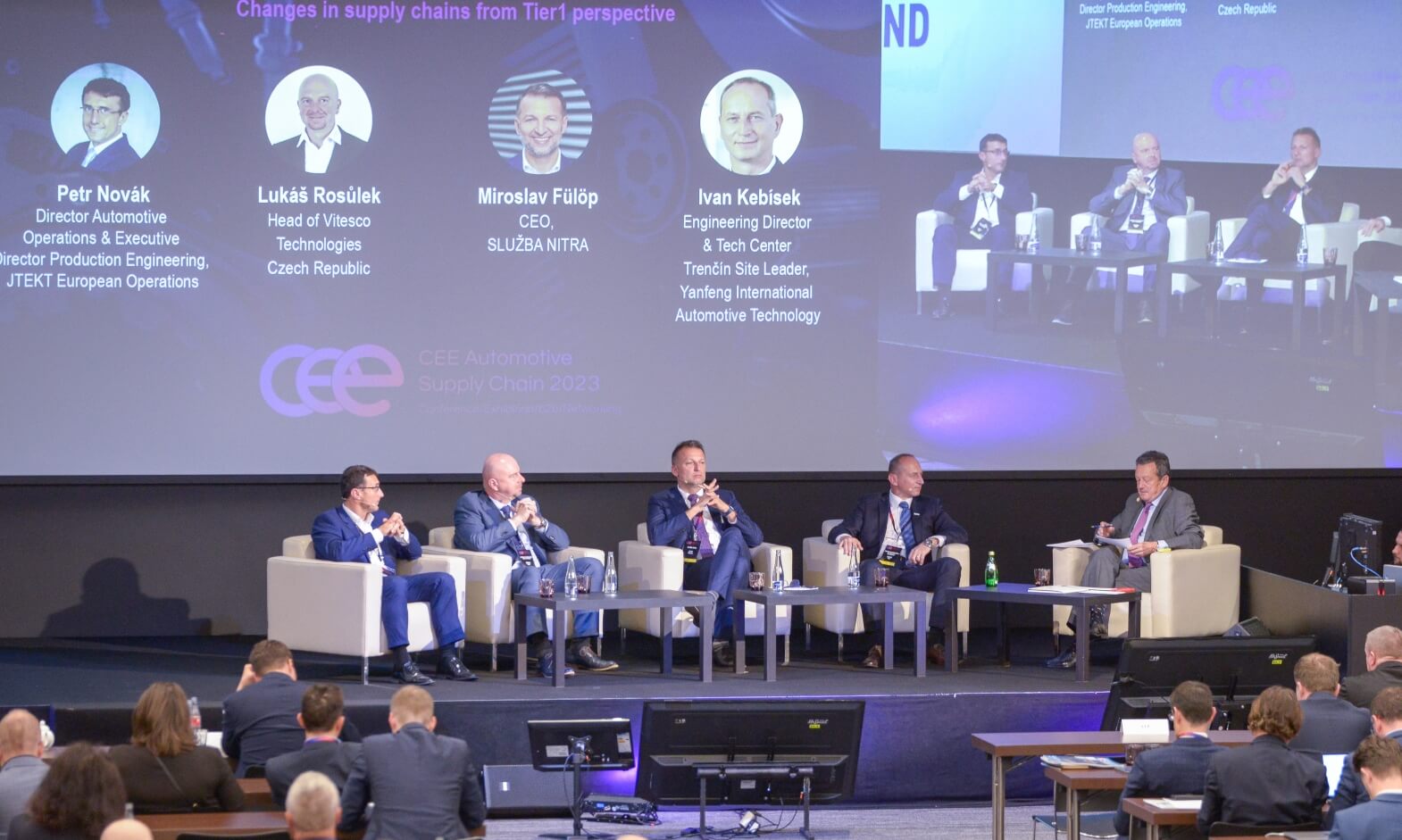
Participants of the supplier panel (from left) Petr Novák, Lukáš Rosůlek, Miroslav Fülöp, Ivan Kebísek and moderator Ivan Hodáč. | Photo: ZAP
“The situation is not happy, we are not yet close to the production volumes as before the covid, but the worst is probably behind us,” Petr Novák from JTEKT assessed the current situation in the supply sector, adding that from a geopolitical point of view it is impossible to predict what will happen. In any case, it is good to diversify suppliers and, if possible, have them as close as possible. Unfortunately, he added, from a pricing point of view, Asia is still mostly winning as a supplier.
The irregularity of supplies and shortages was also confirmed by Ivan Kebísek and Miroslav Fülöp, who said that the way to combat this is to expand orders, i.e. diversify the portfolio.
According to Petr Novák, the difficult years have forced companies to be flexible, strengthened their competence in crisis management and taught them to anticipate better. They have also increased the emphasis on a faster return on investment – in the JTEKT plants that Petr Novák manages, the costs of automation must be recovered within a year at most.
“CEE Automotive Supply Chain 2023 welcomed 333 participants from 16 countries this year.”
All panelists spoke about the need for investment. In this context, Lukáš Rosůlek from Vitesco announced a fresh investment of the company in Hrušov u Ostravy, for which the investor is asking for an incentive. According to Rosůlek, the law on investment incentives, which has been in the process of being amended for many years, may be one of the obstacles to greater investor interest in the Czech Republic.
The representatives of suppliers agreed that overall their relations with OEMs have improved because their business partners-customers realise that they need each other. However, these relationships are far from perfect.
If companies in the supplier sector were to indicate where the money available in the form of subsidies from a number of European and national programmes should be directed, it should be innovation, R&D, decarbonisation and the labour market in the form of upskilling, reskilling support.
Sustainability from several sides
In the session dedicated to the circular economy and the possibilities of decarbonisation in the automotive industry, Cyril Klepek, founder and CEO of CYRKL, and Pavel Grmela, Project Manager for CO2 neutrality, Škoda Auto, spoke about a specific project they are working on.
More and more companies are thinking about the sustainability of their products. Pavel Sovička, Managing Director CZ & SK, Panattoni, general partner of the conference, added the perspective of industrial developers. They are already addressing the issue of carbon neutral products, in this case production halls. And not only for automotive companies.
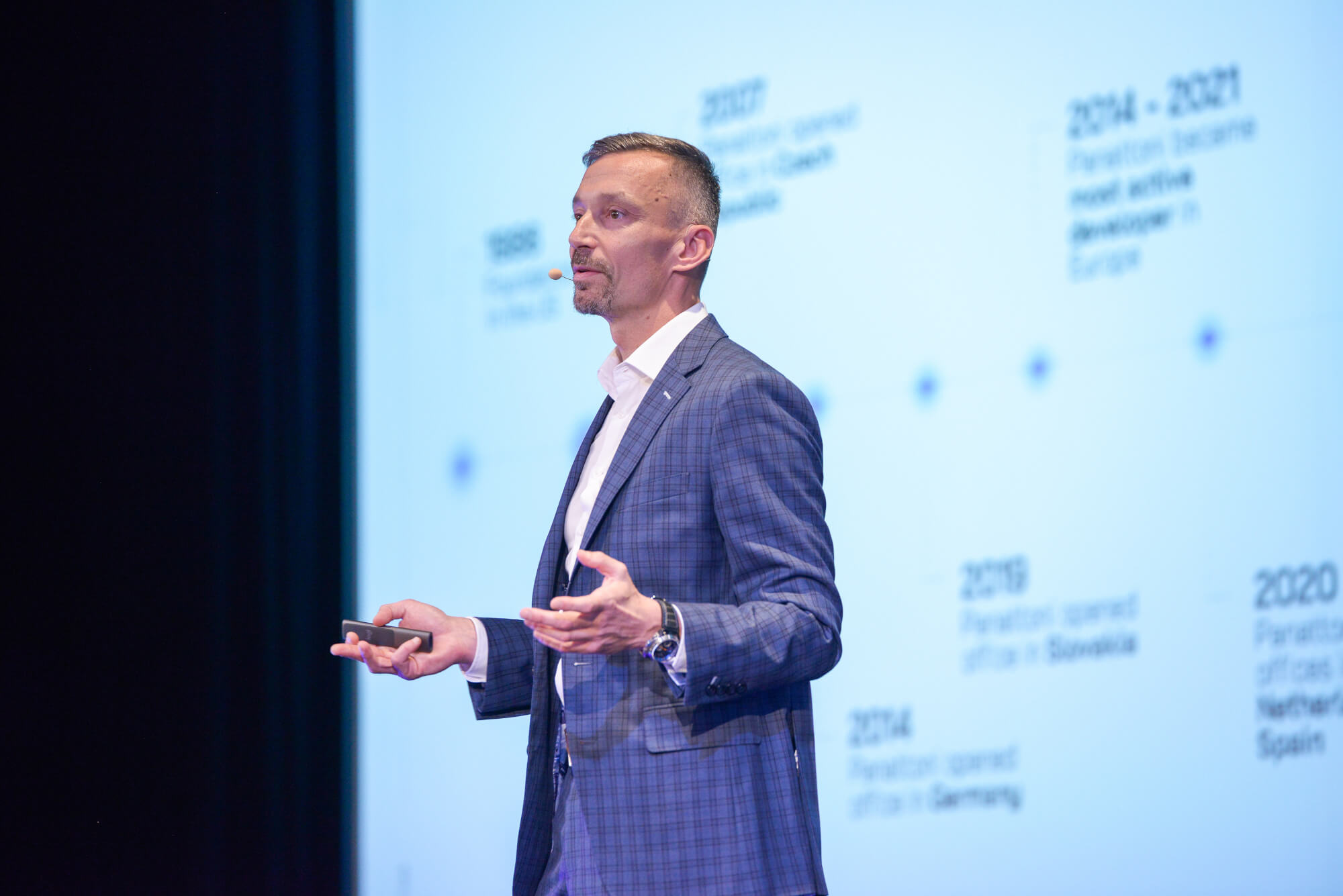
Pavel Sovička, CEO CZ & SK, Panattoni, general partner of the conference. | Photo: ZAP
The topic of practical use of AI in automotive production was offered by Lukáš Ptoszek, Business Development Manager at Unikie. He pointed out that the digitalization of companies does not only lead through the system, but especially through people who want to actively work with it.
Oliver Brauburger, Head of Procurement at Siemens, gave the conference participants an insight into the strategy for resilient supply chains in uncertain times, as applied by Siemens.
The importance of speeding up immigration processes to Finland was mentioned in a short speech by Finnish Ambassador Tuominen Pasi.
As usual, the second day of the conference was dedicated to B2B meetings. CEE Automotive Supply Chain 2023 welcomed 333 participants from 16 countries this year.
Contact








